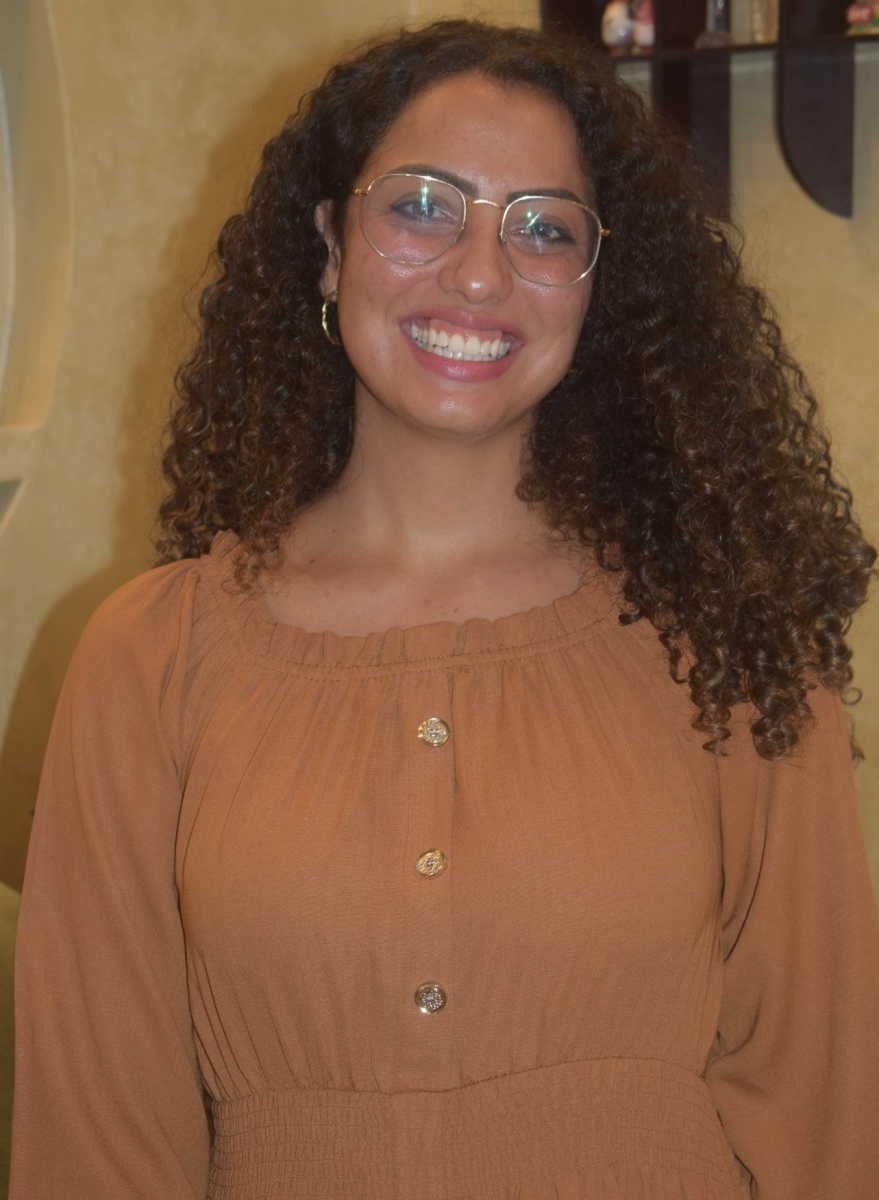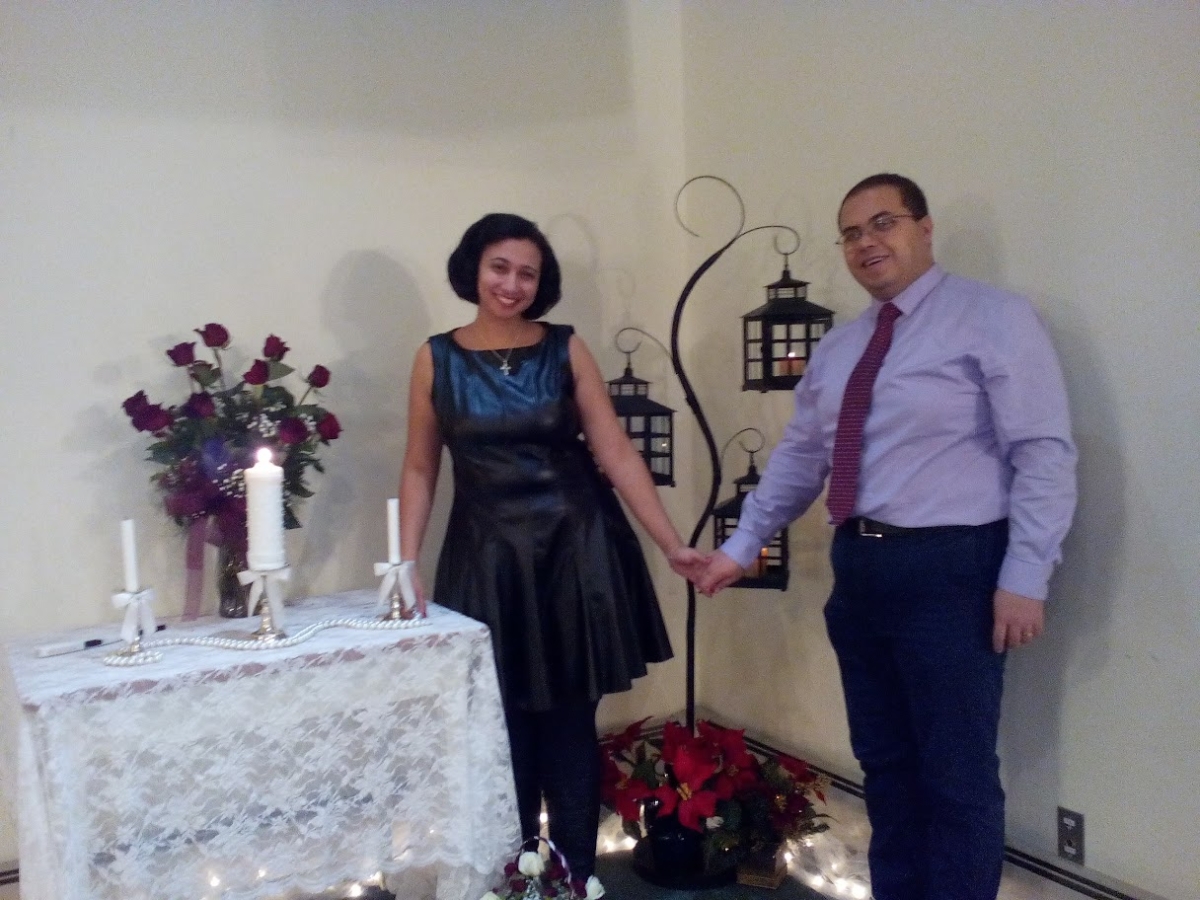On All Saints Day, November 1st, in All Saints cathedral in Cairo, Ibram Nady was made deacon. He will serve as Pioneer Minister in the Red Sea resort of Hurghada.
Ibram is an engineer by training but a missionary at heart. Together with his wife Francine they have already had mission experience in places as far apart as Iraq, the United States and Finland. Now they have found a home both within the Anglican Church (which was not their birth church) and in Hurghada, a popular destination for holidaymakers from across Europe, and beyond. Ibram and Francine have been living in Hurghada for the last two and a half years during which time they continued secular employment, but their home there has been a gathering place for Christians keen to engage in Bible study and prayer together. It is that initial seed which they will now be nurturing.
I joined them for their weekly Saturday evening meeting. Numbers vary between a dozen and twenty adults and up to ten children. Francine runs a ‘Sunday School’ for the children while the adults engage in prayer and discussion. The topic for this week was due to be the Eucharist. Ibram believes that the Eucharist should be at the heart of worship, and he is keen to establish it, but recognizes that with people attending from many traditions, there needs to be careful preparation. In the event, the theme of the evening was the situation in Gaza and Israel. Ibram introduced the discussion that led to extended prayer. The key theological, as opposed to political question for him was: is the current state of Israel coterminous with the Biblical people of Israel? And his introduction prompted a full discussion.
Ibram and Francine have both concluded theological training through the Alexandria School of Theology, and that showed in his introduction. Every session is carefully prepared and meticulously researched.

The meeting began with worship that consisted of worship songs and prayers led by Bruna, a Brazilian missionary working with YWAM (Youth with a Mission). She has previously worked in Canada and South Africa and felt a special calling to Egypt. She values the weekly meetings and the ‘congregation’ that has gathered and developed. She thinks of it (as do its members) as family rather than anything more formal. She says that as a group they are generous and open to what God is doing. They show pastoral concern ‘if you have a problem, they are worried about you.’ She loves preparing the current worship but is open to a development with Eucharist. She worshipped in the context of a Roman Catholic Mass in South Africa. She says that the important thing about worship, whatever its form, is that it is Christ-centered.
The ’family’ is diverse. Margaret came to the area as a resort rep in 2007 and has been here ever since, developing a career as a diving instructor. She grew up as an English Anglican and welcomes a place to come to feed the spiritual side of her life. Tanya speaks of a welcoming atmosphere. ‘Here people listen,’ she says, ‘they have an open ear.’ Dr Shawky attends whenever he visits his daughter who lives in the town. Back in 1985 he founded a charity based on the words of Jesus in John 10:10 (I came that they might have life and have it in abundance) called Better Life dedicated to the rehabilitation of street children in Cairo. Like so many projects it suffered from the COVID experience and an organization that once catered for a hundred children now has contact with only twenty five because funds have dwindled. Nevertheless, his dream is to build a children’s village and he has already purchased the land.
Tito is also based mostly in Cairo but is one of the group’s most faithful members. A refugee from Darfur he was attracted to Christianity by the care and love he was shown by Christians on his arrival. He now has a small business and uses that as a basis for informal evangelism. V is a baptised Catholic from an American/Chilean family and works as a fitness coach. She is married to an Egyptian seaman and fisherman from a Muslim background whose dream is to build his own boat. The group knows her situation and prays for the continued success of the couple's crowdfunding page.
For Ibram this is not just a group but a church, and indeed it is advertised as an International Church under the auspices of the Episcopal Anglican Church in Egypt. It has now reached the stage where it could expand to have a separate building of its own. A building has been identified, and the present owner, a Christian, is keen for them to buy it. But despite the favourable terms being offered, the price is still too high for current Diocesan or local funds. They continue to pray that a miracle may happen, and a benefactor be found.
Ibram has dreams for the future. He believes that a designated church building with a weekly Sunday Eucharist, in English, would be attractive to the many tourists who flock to the area. He can see a holistic ministry developing, in which Francine will also be a key player. Although he is the one ordained, Francine is a full partner in the project and, as Ibram sees it, essential to its success. He tells me that this is the only Anglican church on the Red Sea coast, and he believes that from this base in Hurghada other worship centres could be developed further south to form a Red Sea Ministry Area.

The meeting concludes with prayers in several languages. The Rev’d Ibram will, it seems, along with Francine, be planting seeds in fertile ground.
